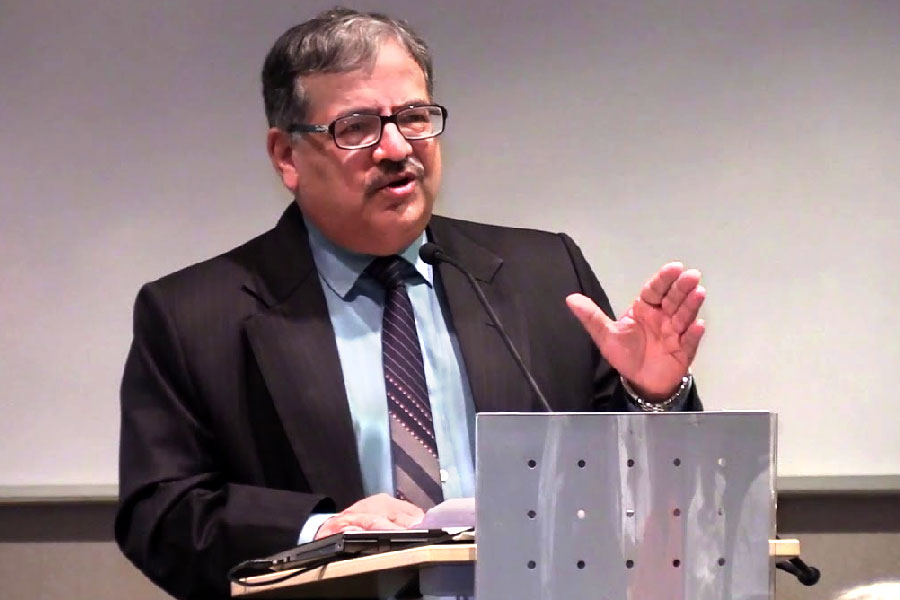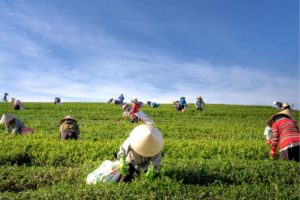COVID-19 & the IPR waiver: Will it work?
Prof Manoj Pant, Director, IIFT, argues that for once, the IPR waiver on COVID vaccines should be taken as a non-political necessity in response to a once-in-a-decade event. The long term political opposition to TRIPS can be continued later.
- The US is now on board with the India-South Africa proposal for international IPR waiver on COVID-19 vaccines. This paves way for the other nations to back the idea and undermines opposition from vaccine producer countries at the WTO.
- Hence, the current step (presumably aimed at the global vaccine production) is vital in recognition that the fight against the pandemic can only be fought by global spread of vaccines. But it is unlikely that this global production expansion will happen via emergence of new producers in the short run of the next 5-6 months.
- However, what is achievable (maybe even speeded up) is expanded production by existing producers. Even prior to the US actions, producers like Moderna had already publicly stated that they were willing to transfer the production to producers at some pre-arranged fee.
- IPR infringement in medicines would be hurting the cause of not only controlling the current epidemic but also research on cures for other ailments like diabetes, cancer etc.

The US is now on board with the India-South Africa proposal for international IPR waiver on COVID-19 vaccines. With this move, it is unlikely that opposition from major producing countries like Switzerland, Germany, Canada and others will prevail in preventing emergence of a consensus at the WTO.
The last time such an issue came up was during the Doha round of trade negotiations where the objective was to obtain patent override for producing medicines to counteract the spread of the bacterial anthrax infection in the US, following a suspected terrorist operation after 9/11. This led to the Doha Declaration on Health, which allowed patent override in producing antibiotics for anthrax. However, the current US assent is for IPR waiver for vaccine production and not anti-Covid medicines. Yet, this must be considered a step forward in recognition that the COVID-19 pandemic is a global concern and must be addressed in a multilateral setting.
Further, it must be recognized that, unlike in the case of bacterial infections like anthrax, in the case of the corona virus, no known single medicine is used in treatment and hence patent infringement would require coverage over vast classes of medicines like steroids, antibiotics, antivirals, etc. which is unlikely to find non partisan support at the WTO. Hence, the current step is vital in recognition that the fight against the pandemic can only be fought by global spread of vaccines.
What calls for the IPR waiver for COVID-19 vaccines?
The main necessity stemmed from the transition from process to product patent as part of the WTO’s Agreement on Trade-Related Aspects of Intellectual Property Rights (TRIPS). This implied that if any country was to attempt to break a vaccine patent using compulsory licensing, then other countries could retaliate via trade restrictions on other products under the ‘single undertaking’ commitments which have underlined every single WTO ministerial discussion since 1995. As and when the WTO establishes consensus on the IPR waiver, at least such cross agreement retaliation will not be possible. Presumably, the objective is to expand production globally. Currently, only a few countries (including India) are the main producers of vaccines. How likely is this to happen?
It is unlikely that this global production expansion will happen via emergence of new producers in the short run of the next 5-6 months. It must be noted that the current production of vaccines is mainly by known vaccine producers like AstraZeneca/ SII in India or Moderna, Pfizer, and Johnson in the USA. In other words, the technical ability to produce vaccines already rested with these companies. This technical ability, combined with known protocols of testing and trials, made them the most likely candidates for bringing out a vaccine in the historically record time of a year or so.
Further, even for these established producers, the relative efficacy of the vaccine is still up for debate, given the still limited usage. It is unlikely that new producers would be willing to undertake this task, as technical and market barriers to production should be enormous. However, what is achievable (maybe even speeded up) is expanded production by existing producers.
Given the serious nature of the pandemic and its global reach, existing producers would be incentivised to transfer technology to other producers before usual patent time. That the usual arguments of patent protection would not apply is already known to existing producers. Note that, even prior to the US actions, producers like Moderna had already publicly stated that they were willing to transfer the production to producers at some pre-arranged fee. This would enable them to expand existing production using capacities of others, hence saving at least the fixed costs of expanding existing production capacity.
The license fees would then only need to cover variable returns to R&D via royalties. This would also enable producers to price the vaccine at rates far less than required to cover new production capacities. Note that Adar Poonawala of SII had stated publicly that at at a rate of Rs. 150 per dose even at the then lower scale of government orders, SII would still make normal profits, but that this would not cover costs of expanding production.
IPR: A temporary fix?
It s worth restating that what is needed is a short run solution not a long run one as there are no existing substitutes to the vaccine. We also know that a long vaccination period of say a year or more would lead to emergence of new variants of the virus with unknown consequences.
The argument that compulsory licensing leads to competition and new innovations may apply to cases where generic substitutes exist and where time is on the side of consumers. But this is not true here.
Those who are likely to try to expand the argument to IPR infringement in medicines would be hurting the cause of not only controlling the current epidemic but also research on cures for other ailments like diabetes, cancer etc.
The IPR waiver has a limited objective – control of the existing pandemic. As Jan Tinbergen argued, target instruments to objectives. For once, let the IPR waiver be a non-political necessity in response to a once-in-a-decade event. The long term political opposition to TRIPS can be continued later.
Prof Manoj Pant is an Indian expert in International Trade. He is the Director of Indian Institute of Foreign Trade, since August 2017. Previously, he was a full-time professor at the Centre for International Trade and Development, Jawaharlal Nehru University, where he taught international trade theory. Views expressed are personal.













Leave a comment